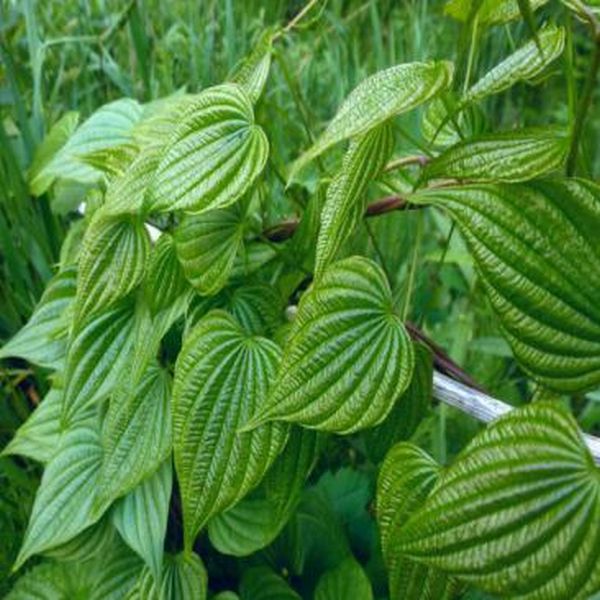Wild Yam is a very good antispasmodic
Wild yam (scientific name (Dioscorea villosa) is a plant native to North America, Mexico, and part of Asia. The root and bulb of the plant have long been used for traditional medicine. In recent years, the phytosteroid diosgenin has been identified as the key medicinal component. Phytosteroids are plant-based steroids that are similar to the steroids produced in the human body.
There are over 600 species of wild yam. Some species are grown specifically as a source of diosgenin for laboratories to use in making steroids. These species are generally not eaten due to a bitter flavor. Only about 12 of the 600 species are considered edible.
Wild yam is a tuber plant of the dioscorea family that can grow even in very harsh soil conditions. Wild yams are characterized by nodes and twisted roots, as well as large heart-shaped leaves.
Wild yams are best known for their saponins, which chemically alter to produce progesterone, a steroid hormone associated with a woman’s menstrual cycle. Wild yams are known to have properties similar to dehydroepiandrosterone (DHEA) and can act as precursors to estrogen and progesterone, two female hormones. Based on this principle, many nutritional supplements contain this plant ingredient.
Wild yam extracts are often used to treat painful symptoms associated with menstruation and menopause. Its active ingredient, diosgenin, is widely used to synthesize hormones including estrogen and progesterone. However, this conversion can only occur in laboratory chemistry, and the body cannot naturally convert diosgenin into progesterone.
Traditional Chinese medicine also USES wild yam extract to treat digestive tract inflammation. It is also believed to be a natural antispasmodic that ACTS as a counterbalance to the entire digestive system. It can effectively treat colon cancer, stomach cramps and convulsions, and relieve pain.
In the past, people used wild yams to treat hernias. Used to treat muscle diseases, asthma, cold, whitlow, arthritis, hemorrhoids, rheumatism and so on. However, modern science has not yet proved the effectiveness of the plant in treating these diseases.
Wild yam is often used as a home remedy for a stomachache. Herbal powders and capsules are two popular alternative forms. Keep in mind that wild yams should be avoided during pregnancy or in the presence of peptic ulcers. This herb can cause ulcers to worsen in some people. In addition, patients with thyroid disease, diabetes, hypoglycemia, urinary tract infections, leukemia, and hepatitis should avoid wild yams.
The appropriate dose of wild yam depends on several factors such as the user’s age, health, and several other conditions. At this time there is not enough scientific information to determine an appropriate range of doses for wild yam. Keep in mind that natural products are not always necessarily safe and dosages can be important. Be sure to follow relevant directions on product labels and consult your pharmacist or physician or other healthcare professional before using.
